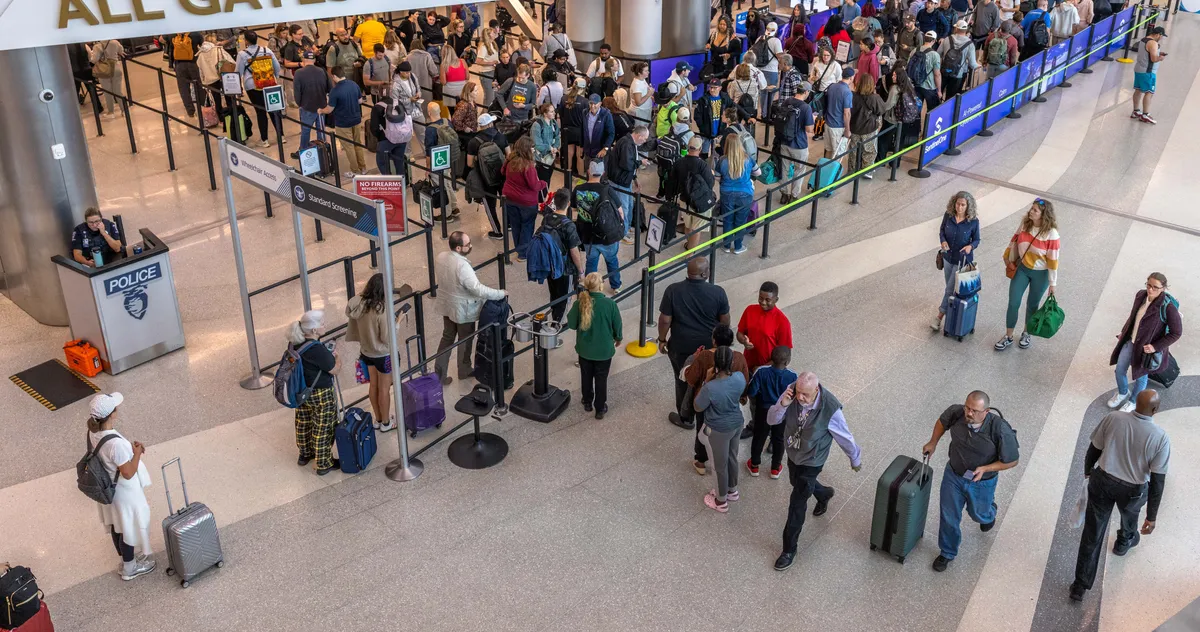Copyright New York Magazine

Even if it ends in the coming days, the government shutdown won’t bring immediate relief from air travel chaos, according to aviation experts. Airlines and air traffic controllers alike will have significant work ahead of them in unraveling the mess that has built up over the course of the 41-day and counting shutdown. The aftereffects could even linger into the Thanksgiving travel period. “You’ve got controllers who are clearly fatigued and will need to get caught up on rest,” says John Illson, a former airline pilot and Federal Aviation Administration official. “And because airline schedules have been disrupted, crew and aircraft are out of position, so flights will continue to be delayed or canceled.” To be sure, the overall picture looks better than it did before Sunday night, when a group of Senate Democrats decided to break ranks and side with Republicans in a deal to reopen the government. The air travel industry had experienced steadily worsening delays and cancellations in the week after controllers missed their first full paycheck last Tuesday. On Wednesday, the FAA ordered airlines to begin reducing their number of flights at 40 major airports starting that Friday. With their plans scrambled, airlines struggled to accommodate stranded travelers, as every cancelled flight meant that aircraft and flight crews weren’t where they were supposed to be. By Sunday, the system had become badly snarled, with around 10 percent of all flights cancelled and 30 percent delayed by more than 30 minutes, according to Cirium, a company that collects air travel data. Some airlines and airports suffered more than others: at both Newark and LaGuardia airports a third of all flights were cancelled and nearly half were delayed. As of Monday morning, Cirium’s data indicated that travel would continue to be disrupted during the day ahead, with cancellations standing at 5.5 percent and growing. By midday Newark, LaGuardia, Teterboro, Miami, and Las Vegas were all experiencing significant slowdowns and FlightAware was reporting that more than 4,000 U.S. flights had been delayed. Expect more of the same in days to come. Even if the shutdown wraps up by the end of the workweek, it will take at least a few days for the system to get back on its feet. “Based on past events, I would anticipate a return to normal operations within two or three days,” says Mike Arnot, an airline industry commentator. But even when airlines return to their previous flight schedules, the aftereffects of the shutdown will linger. For one thing, the failure to pay controllers for more than a month has put added strain on a profession already suffering from chronic understaffing. At the start of the shutdown, the FAA employed about 11,000 certified professional controllers, some 3,000 less than required for full staffing. As a result, most controllers had to work mandatory overtime shifts to make up for the shortfall. The stress of the shutdown has caused the situation to worsen, according to Transportation Secretary Sean Duffy. “I used to have about four controllers retire a day before the shutdown,” he told CNN. “Now up to 15 to 20 a day are retiring.” That means that the system will be even more fragile than it was before, and more prone to delays and cancellations in the face of storms and other disruptions. There’s also another factor that could cause problems going forward. Airlines are limited in the number of hours that pilots and cabin crews can work per month. The large scale of unexpected flight cancellations has forced the airlines to use their personnel inefficiently. “If an airplane isn’t in the right place at the right time, an airline has two choices. Either it cancels a bunch of flights until that airplane is actually needed, or it ferries it to another place,” says Illson. “If you ferry it to another place, that means you’re using flight crews to fly at an empty airplane, which is obviously inefficient.” Thanksgiving is the year’s busiest travel period, a time when airlines and air traffic control are pushed to the limit. This year the airline will be going into it having already used up a lot of their crews’ legal flight time. “They’re going to be squeezed,” Illson notes. “My expectation is that airline scheduling inefficiencies created by the shutdown will lead to pilot and flight attendant staffing issues that result in delays or cancellations during the last week of November.”



